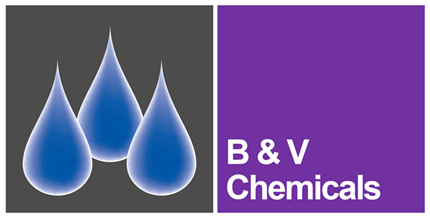B&V's proven range of polyamine closed circuit inhibitors comprise formulations for systems manufactured from iron based metals and yellow metals, with specific formulations also designed for use in multi-metal systems.
Formulations are also available which effectively treat notably difficult semi-closed systems such as those cooling aluminium moulds. In the past, these systems have posed numerous problems when using conventional molybdate, nitrite and phosphate based inhibitors, with phosphate and nitrite being particularly prone to degradation by bacteria. Mould corrosion and microbiological contamination are just two of the major issues with these systems that the use of biostable polyamine inhibitors can effectively overcome.
Polyamines are also compatible with glycols so can be used effectively in chiller systems. The biostable nature of the polyamine inhibitor formulations is important in chillers where microbiological contamination can be a major issue if glycol levels fall below 20%.
The UK is experiencing a dramatic increase in the number of low carbon district heating networks and this is expected to continue. In 2014, only 2% of homes were connected to a heat network in line with the government’s Net-Zero Strategy and a recent report by the Climate Change Committee which estimated that around 18% of UK heat could come from district heating networks by 2050. The low dose rates, extremely effective corrosion inhibition, and low environmental impact from using polyamines means that this type of treatment is preferred for this type of system in many European countries.
All-in-One Solution:
All in one low dose treatment for closed circuit systems – no requirement for biocide additions.
- Reduced costs associated with purchasing, logistics, handling, and storage of chemicals.
Enhanced Heat Transfer Efficiency:
Removal of corrosion deposits on heat transfer surfaces creating cleaner/smoother surfaces, allowing for more efficient heat transfer.
- Boilers can reach desired operating temperature more quickly and maintain it more easily.
- Substantial fuel consumption savings, reducing both operational costs and greenhouse gas emissions.
Improved Energy and Resource Efficiency:
Reducing the Total Dissolved Solids (TDS) contribution from chemical products.
- Boilers can operate at a higher number of cycles of concentration, enabling reduced water consumption, lower discharge costs, and greater overall resource efficiency.
Superior Corrosion Control:
Polyamines provide a stable and reliable film that resists degradation, where under dosing or over dosing is less critical once the film is established.
- In closed systems, traditional nitrite inhibitors are prone to bacterial degradation and can introduce microbiological issues if not dosed correctly. Under dosing can also lead to pitting corrosion.
- In closed systems, traditional molybdate inhibitors are expensive and prone to depletion in systems with heavy corrosion deposits.
- Protective film makes the system less sensitive to changes in water conditions, such as contamination or pH fluctuations.
- This robustness is especially beneficial for systems with intermittent operation or those that want to avoid coloration associated with tannin treatments.
Cost-Effective Treatment:
Treat the metal surface rather than the entire volume of water within a system
- Significantly smaller quantities of chemical needed, resulting in lower treatment costs, making it a more cost-effective solution.
Enhanced Equipment Lifespan:
- The protective barrier created by film-forming polyamines can help extend the lifespan of boiler equipment and associated pipework by minimising corrosion and scaling. This results in reduced equipment downtime and maintenance costs, offering clients long-term financial savings.
Environmentally Friendly Solution:
Polyamines provide a more environmentally friendly alternative to traditional treatments for several reasons as discussed above.
- Reduced chemical consumption, and reduced handling of hazardous chemicals.
- On discharge the polyamine formulations are biodegradable, unlike traditional nitrite, molybdate and phosphate based inhibitors.
For further information on our polyamine based range of closed circuit inhibitors and steam boiler treatments please contact ownlabel@bvwater.co.uk


.jpg)



